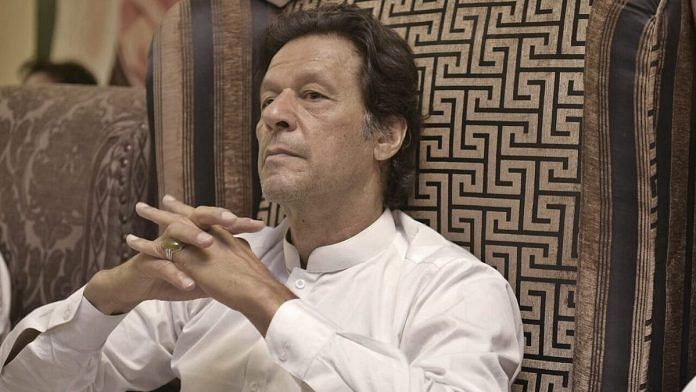
An Internal Matter
Yashwant Sinha | Former finance minister of India
The Telegraph
Sinha writes that he does not agree with the Modi government’s actions in Jammu and Kashmir but Pakistan has “no business” reacting to it in the matter it is doing. India has a legal claim to all the parts of J&K occupied by Pakistan, the territory it transferred to China in 1963, and the territory China annexed after the war of 1962.
Pakistan’s reaction is hampering the efforts of the Opposition in India to critique the government, as they are now being labelled “pro-Pakistan” and “anti-national”, writes Sinha. He cites an Economic Times report which enumerates the history of how Pakistan divided the Kashmiri area under its control into “Azad Jammu and Kashmir” and the “Federally Administered Northern Areas” which included Gilgit-Baltistan. Over the years, through its various moves in these regions, Pakistan has managed to change the demography of the areas it occupied.
Pakistan might shed “crocodile tears”, but it has never cared about the people who have been under its “illegal occupation”. Many in India will “peacefully and democratically” fight the government against the wrongs it has done in Kashmir, but this is not Pakistan’s fight, writes Sinha.
India’s embrace of strategic hedging
Mohan Kumar | Former Indian ambassador to France, academic, and chairman, RIS
Hindustan Times
In view of Prime Minister Narendra Modi’s recent meetings with the leaders of France, US and Russia, Kumar writes that India’s foreign policy is presently at its “strategic best”.
Modi has “rejuvenated” India’s partnership with France, with a joint statement stating that the countries had crafted a “roadmap for cybersecurity and digital technology”, as well as quantum computing and artificial intelligence. France has also stood by India on the Kashmir issue, he writes.
India’s ties with the US have only grown stronger. The offer made by US President Donald Trump in July to mediate on Kashmir is now in the past. Trade remains a contentious issue, but the commerce ministers of the countries will meet soon to resolve matters. Even ties with Russia are strong, as seen from Modi and Russian President Vladimir Putin’s recent meeting in Vladivostok, writes Kumar.
However, Modi’s impending meeting with Chinese President Xi Jinping in Mamallapuram will be challenging. China does not seem to have India’s best interests in focus, in terms of trade and foreign policy, so a “summit-level meeting” between the countries is crucial, adds Kumar.
Justice Tahilramani: An arbitrary transfer, a graceful resignation
R. Vaigai, Anna Mathew and S. Devika | Advocates, Madras High Court
The Hindu
Vaigai, Mathew and Devika write that the transfer of Chief Justice Vijaya K. Tahilramani from the Madras High Court to Meghalaya is a case of “downgrading” and amounts to “public humiliation” that has led to her resignation.
The collegium system was created after the controversial “punishment transfers” of certain judges by the Union government during the Emergency. The apex court can order transfers only in “public interest, or under certain conditions. None of them hold true for Justice Tahilramani, writes the trio.
Reports have suggested that Tahilramani was transferred because of her judgment in the Bilkis Bano case which relates to the 2002 Gujarat riots. Personal grudges on part of the Supreme Court judges has also been speculated to be one of the reasons behind the move.
The trio adds that Tahilramani’s resignation is reminiscent of the decision of Justice H.R. Khanna, who had quit after facing backlash at being the sole dissenter in the ADM Jabalpur case (Habeas Corpus case) during the Emergency. The collegium needs to be more transparent and “build a fearless and strong judiciary and serve the public interest”.
Karan Thapar | Senior journalist
The Indian Express
Thapar writes that British Prime Minister Boris Johnson might prove to be the weakest as well as the “shortest-serving” PM in Britain. After the House of Commons, including 21 of his own MPs, voted against him for trying to take Britain out of the EU without a deal, it seems Johnson is “in power but without majority”. His attempts to enact the Fixed Terms Parliament Act and hold an election on 15 October did not garner enough support either. He will try again Monday, but the joint efforts of Jeremy Corbyn’s Labour Party and the Scottish Nationalists to ensure an election does not take place before the 31 October Brexit deadline might dampen Johnson’s efforts, writes the journalist.
Johnson may not be able to fulfil his “do or die” promise of sticking to the deadline, but he might “have some tricks up his sleeve”. First, he could try to strike a new deal with Brussels and get Britain to leave the EU before 31 October. Second, he could ignore Parliament’s decision for a Brexit extension and leave the EU without a deal. Third, he could just quit rather than ask the EU for an extension, adds Thapar.
Desertification: Rio’s stepchild
Sunita Narain | Writer, Centre of Science and Environment
Business Standard
Narain calls the United Nations Convention to Combat Desertification (UNCCD) “Rio’s stepchild” and argues that it is time for it to shed this image. The UNCCD was a “neglected” agreement and was signed in the 1992 Rio Conference only because African and developing countries wanted it.
However, managing our natural resources, which is the aim of this conference, is now imperative to the climate change battle and “will make or break our present and future”, she writes.
Narain argues that desertification is now a “global issue” and “the poor in the world are the victims of this ‘human-made’ disaster — local or global”. Thus, there is a need for countries to come together to combat natural resource degradation as it can “shave off the worst impacts of climate change”.

COMMENTS